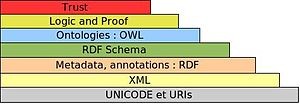‘Content Is King’ is a clichéd line which I think the entire universe must have heard by now . The recent Panda and Penguin updates by Google have made everyone work out a content strategy for 2013 if they are seriously interested to have a valuable search presence.
But by just adding content to your blog if you think your job is done then be assured that all the resources allocated to add that content will not reap any dividends if you are not focusing on certain factors.
In 2012 we saw Google trying to leave no stone unturned for removing the spam , malicious links which degraded their PageRank factor and tried their very best to eradicate or rather push the thin and irrelevant content to the invisible web.
But in 2012 Google started giving more importance to social media signals, consolidated data from Google+ accounts, authorship markup , schemas and webmaster tools accounts. By doing this Google is trying to assess the credibility, popularity , reputation and reliability of the site.
We have written in detail about the various factors influencing content and thereby the content creator in the following posts:
http://searchenginewatch.com/article/2214849/Googles-Knowledge-Graph-Implications-for-Search-SEO
http://blog.webpro.in/2012/03/how-semantic-web-html5-microformats-and.html
As you can see in the above image of the semantic layers, 'TRUST' is the top most layer. All the other layers contribute in creating the Trust Layer. Trust is the emotional and logical aspect of the users decision to refer and recommend the site and content if he has been getting valuable information from the site.In the long run when the web will be facing the problem of Content Explosion this will be the most important factor determining the overall search presence of any website.
In May 2011 Google discussed More guidance on building high-quality sites
When Google answered the question What counts as a high-quality site? Out of the 23 questions that Google asked, the first and foremost question asked was :
Would you trust the information presented in this article? And all the other related questions determining the quality of the site contributed or correlated to this trust factor.
So the most logical question that follows now is what are the factors influencing the TRUST FACTOR or How does Google determine or rather will be determining the TRUST FACTOR ?
As in the image above the Trust Factor attribute is at the top most layer hence it is influences by the sum influence reflected by each layer below it. It is not like the cherry at the top of a cake having layers of icing but is like the fruit on the top most branch of a tree which has got its nutrition from each and every part of the tree starting from the roots.
Some Of The Factors Influencing The TRUST FACTOR OR Rather The Jewels Which Make Up The Crown Are:
- Age of the domain
- Quality of the content
- Social media signals
- Authorship Markup
- Security
- The context of the content
- Usage Metrics (CTR, Bounce Rate, Time On Site, No. of New Visits)
- Topical Inbound Links
- Webmaster Tools Account verification
- SSL Certificate or a secure payment gateway incase of Ecommerce sites
- User Privacy Option in user preferences
- User reviews on Google Local search, on reputed local directories and user onsite reviews
- UGC - User Generated Content by way of comments on blogs
- Regular updation of the site as per the latest web standards
- Consistent Contact details on site and across the web Address, Phone no, Social Media Accounts linking to and from site to social media account and vice versa
- The quality, content and reputation of external links
There is no such thing as a “Trust Rank” as mentioned on some SEO blogs but yes there are certain factors which influence your overall ‘Trust Factor’ and accordingly affect the rankings.
Matt Cutts explains in the following video:
Every piece of content you publish, share or link you get associated with influences your trust factor accordingly. I am not aware of the mathematical formula or the grading system used by Google to evaluate the ‘Trust Factor’ but all the factors mentioned above are collectively responsible in influencing it.
Next time you publish or share content on any web platform, place the quality and the context of the content in mind rather than the quantity so that every footprint you make on the web adds up to your web karma and thereby influence the ‘Trust Factor’ to future proof the search presence.
The Trust Factor can make the site an "Authority Site".
If ‘Content Is King’ then it needs a crown as monarchy is incomplete without the royal crown and the TRUST FACTOR is that royal crown.
January 15, 2013





